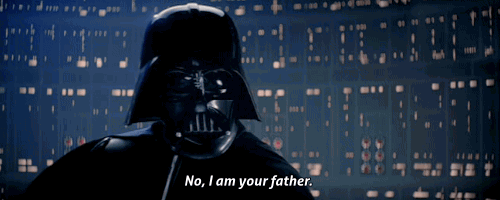Forty years ago on a soundstage just across the pond, British actor David Prowse donned a shiny black helmet and became the most iconic movie villain in history—until Star Wars director George Lucas overdubbed his performance as Darth Vader with the dulcet, booming voice of James Earl Jones.
Prowse, now 80 years old, still hasn’t gotten over the snub that simultaneously made his career. But there’s a bigger disturbance between the O.G. Vader and the architect of the Star Wars universe.
In the new documentary Elstree 1976—about the hopes, dreams, and rather mundane real lives of the supporting actors and background extras cast in the original Star Wars—Prowse sounds off on the beef with Lucas that’s made him “persona non grata” at the billion dollar franchise’s biggest annual conventions.
ADVERTISEMENT
Interviewed at his home two years ago for the film, Prowse says he has no idea why he has been “barred” from Star Wars Celebration—the biggest Star Wars event on the fan convention circuit where he, like many former cast members and celebs of yesteryear, now makes much of his income.
“Unfortunately I’ve been barred for some obscure reason—also [from] Disney Star Wars Weekends. Ask Mr. Lucas,” he adds with a bittersweet shrug. “I’ve obviously upset him at some stage or another. And they just feel I’m persona non grata at those two shows.”
One possible reason for the ban—which is not mentioned in the film—was Prowse’s participation in the 2010 documentary The People vs. George Lucas, an anti-Lucas doc. Prowse claims he had no idea he was being interviewed for a doc bashing the Star Wars architect. Or maybe it was the time he delivered a speech at UC Berkeley in 1978 wherein he spoiled the ending to The Empire Strikes Back—two years before its theatrical release.
“Darth Vader and Luke Skywalker… are hooked up in a do-or-die lightsaber duel when Luke learned that Darth is, in fact, his long-lost father,” Prowse told the audience. “Father can’t kill son, son can’t kill father. So they live again to star in Star Wars IV.”
Jon Spira’s mostly lighthearted documentary is named for Elstree Studios, the modest compound just outside of London where hundreds of wannabe stars found themselves cast in a little sci-fi production in the spring of 1976.
The director tracks down ten actors whose lives were changed when they landed bit parts they’d never dreamed diehard fans would obsess over for generations—serendipitously credited with names like Leesub Sirln, Gold Leader, or sometimes simply “Temple Guard” and “Jedi Mind-Tricked Sandtrooper.”
That’s a mighty handful of personalities to wrangle, and unfortunately the film’s quick-trigger editing bounces back and forth between Elstree’s subjects too fast for too long. What results is a confusing and too-often tedious mélange of middle-aged faces waxing poetic about the bizarre pop culture phenomenon they once played a bit part in.
But occasionally, between the wistful remembrances of youthful dreams dashed and rearview-mirror perspectives on post-Star Wars addictions, pregnancies, and mental illness that got in the way, Elstree 1976 strikes moments of genuinely endearing profundity and humor.
“It didn’t seem anything special to me… I kind of thought it was a low-budget film to begin with,” marvels Laurie Goode, an actor and musician who followed his triple turn as a Stormtrooper, cantina denizen Hrchek Kal Fas, and an unnamed X-Wing pilot with dozens of television appearances and a run on Doctor Who.
The film finally probes beyond the foggy-fond memories and cute observations, however, when it catches us up to the actors’ and extras’ lives well after Star Wars—decades later, in fact, when Star Wars’ sequels turned Lucas’s humble little movie into a full-fledged franchise.
That’s when the fan conventions started popping up, and with them, opportunities for everyone even tangentially involved in anything Star Wars—not just the Harrison Fords or the Carrie Fishers or the Mark Hamills of the world. If you think Prowse has got sour grapes to gripe about, behold the micro-dramas of the Star Wars between the guys even farther down the cast list.
“Kenny Baker lived in a tin can and he’s probably the most popular of them all,” complains Angus MacInnes, the genial but frustrated actor who played the rebel fighter known as Gold Leader. By his own admission, he had to read his lines off the pages on his lap. But at least he got to show his face—which, he points out, is more than series stars like Baker or Boba Fett himself, Jeremy Bulloch, did.

And yet at Cons, he laments, the fans make beelines for those guys’ autographs. “Jeremy’s got a tin can on his head. He’s got a bucket on his head! What’s that about? It’s something that’s driven everybody that’s got a face in the movie crazy. Every single one of us. If you’re recognizable, nobody wants to know about you.”
It would seem there is some honor among bit players on the convention circuit who sell and sign photos for cash. “We had a sort of rule that Star Wars guys, if you had a credit in the movie, you should be there,” MacInnes explains. “If you don’t have a credit then you’re not a performer. Extras, I’m afraid… extras don’t count. They’re not acting. They’re just there.”
One such extra is Derek Lyons, who is by strange coincidence the only Elstree subject to repeatedly reference his own full name and pimp his own martial arts discipline, a practice he calls “ZenSwim.”
“Some of the other actors can be kind of hurtful,” admits Lyons, who went on to appear as a background performer in such films as Flash Gordon, Gandhi, Superman III, and Yentl after jumpstarting his career as a Temple Guard/Medal Bearer in A New Hope. “They have delusions of grandeur.”





